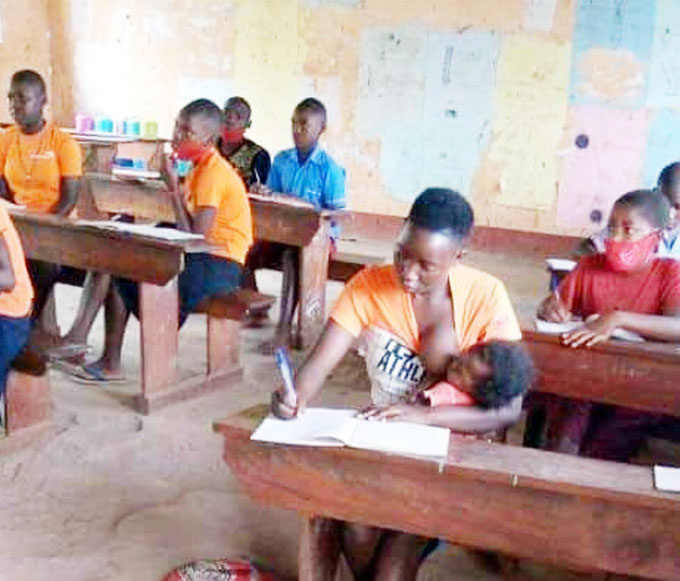#OutToLunch: Getting pregnant girls back to school is the right call
By Denis Jjuuko
Over the last two weeks, an estimated 4.5 million children who are supposed to be in school woke up to do something else, if at all.
This represents 30% of school-going children who have abandoned school after the world’s longest shutdown due to the Covid-19 pandemic according to the National Planning Authority (NPA). A bleak future stares at these children and every effort should not be spared to have them back in school or at least to get some form of training that can empower them for a better future.
Already, reports indicate that some of the thugs that were waylaying motorists at the Northern Bypass in Kampala were teenagers who have since abandoned school. The chance in Africa of landing a decent job is linked to education.
The more education time one spends in school, the more chances of having a better job according to the Mastercard Foundation’s flagship Secondary Education in Africa Report.
The report further reveals that of the 98 percent of young people who enroll at the primary level in sub-Saharan Africa, only nine per cent make it to tertiary education and only six percent graduate. This further shrinks the decent job opportunities for many of Africa’s young people.
For Uganda’s adolescent girls who become pregnant, it is even worse. Two prominent religious leaders at the level of bishop in the Anglican faith have been shouting their voices hoarse insisting that they won’t allow pregnant and breastfeeding girls in their schools.
The Anglican Church in Uganda is a major player in the education sector as an owner of thousands of schools across the country. Although their stance may be based on morality, Christian values call for forgiveness and rehabilitation.
I believe the Church would be more enraged if all these girls had aborted. Since the Church is prolife, it is hypocritical to then deny these mothers an opportunity to study so that they can have a shot at a better life in future. At worse, they could have offered an alternative education platform where these mothers could study.
I have been able to speak to some of these mothers before and many of these girls would prefer to go back to school. Giving them an opportunity to study is the right call. Facilitation of re-entry of adolescent mothers into schools is one way these girls can have a better future for themselves and their children.
A better educated mother, studies show, is more likely to have healthier babies. Removal of policies that deter re-entry by these mothers as well as creating an environment that enables them to study is critical. Parents and guardians have a role to play here too
by meeting the costs of looking after these children and opposing options such as early marriages while pointing at the dangers of teen pregnancy and early marriages.
Teachers should be equipped too on how to handle these young mothers and create an environment that eliminates the associated stigma. Although we hardly talk about the boys who impregnate these young girls, many also drop out of school as they are now expected to start looking after a family.
Yet our primary and secondary education system isn’t fully programmed to provide the skills people need to find work. The highest level most people in Africa will ever attain is secondary education. We need to reform it so that by the time students finish secondary education, they have some skills that can enable them take on this world.
Digital skills such as effective use of social media, emails and the internet, entrepreneurship, communication skills and business, vocational and technical (btvet) skills are some of the pathways that can help young people find meaningful jobs that can enable them live better lives.
Of course, we must also encourage young people to focus on their studies first, and delay childbirth. They must understand the dangers to their bodies and education, and provide them with the information they need about their sexuality. We shouldn’t look at sexuality through immoral lenses; rather, as information young people need to make informed decisions.
We must also dispense with a culture that looks at girls as sources of income in form of bride price as soon as they grow breasts. Parents and guardians must strive to get themselves out of poverty. The government must help them too by putting in place programmes that can genuinely uplift people out of poverty.
djjuuko@gmail.com
The writer is a communication and visibility consultant

